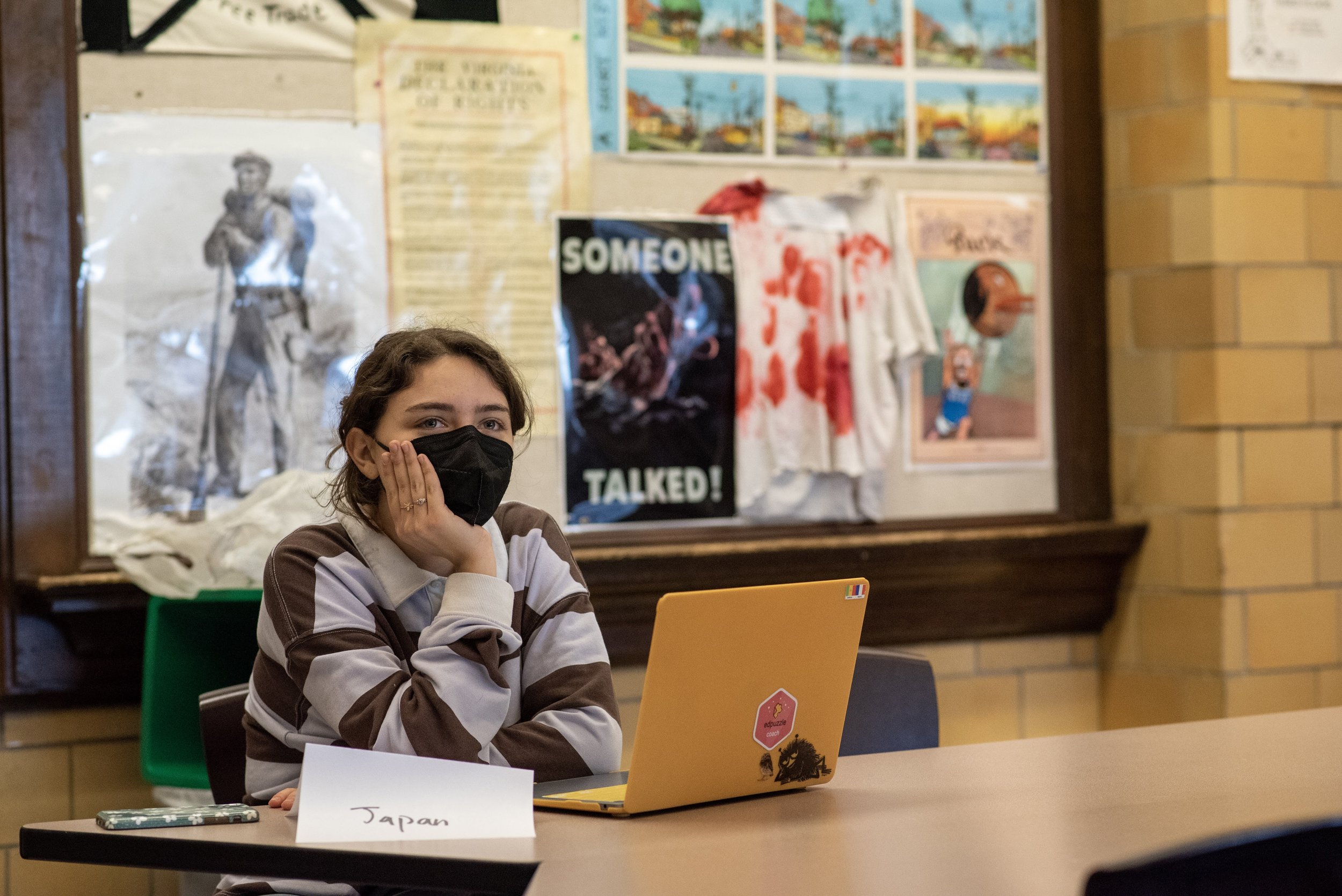
Research & Position Paper Guidelines
Delegate Research
Maggie Walker’s Model UN Club, in collaboration with Librarian Ms. Wendy DeGroat, has compiled a research guide for delegates. The research guide walks delegates through the research and position paper process and provides links to helpful sources, which streamlines research and gives delegates a foundation for committee preparation.
Position Papers
Position papers are required for any delegate who wishes to be considered for awards. Position papers should be submitted electronically by 5 PM on Friday, March 14th to the respective committee’s chair email. You can find sample position papers as well as general guidelines below.
Note: The Ad Hoc Committee of the Secretary-General does not require a position paper. For double delegation committees, only one position paper is required—the two students should collaborate on it together.
Formatting Guidelines
Position papers should be double-spaced and written in size 12 Times New Roman font, with one-inch margins. While there is no page requirement or limit, the recommended length is 2-4 pages.
Content
Position papers should consist of the following sections.
Header
This should include the committee name, delegation, delegate name, and school.
Overview
This section should provide an overview of the delegation and their role and relevance to the committee.
General Assemblies: If representing a country, delegates may include pertinent demographic or historical information, as well as the delegation’s current role in international affairs.
Specialized Agencies and Crisis Simulations: If representing an individual, delegates may include a brief biography of the individual, notable achievements, and recent actions.
The following three sections must be included for both topics covered in the committee background guide.
Topic Background
This section should be an introduction to the conflict presented in the background guide from the perspective of the delegation. This includes but is not limited to a brief history of the issue, recent actions taken by committee members, and potential areas of discussion.
Delegate Position
This section should analyze the issue presented in the background guide and detail the delegate’s position and view. Delegates should consider their position’s general opinion on the issue, as well as current/historic policies they have implemented.
Potential Solutions
This should be the most substantive portion of the position paper, incorporating ideas and proposals from the perspective of the delegate for resolving the issue presented in the background guide.
Solutions should be unique yet realistic, and delegates should have a plan for their proper implementation during committee. Delegates may also address the “questions to consider” located in the background guide in this section of the position paper.
Citations
All sources used in writing the position paper should be cited in a bibliography at the end of the paper in the Chicago Manual of Style (CMS). Footnotes, endnotes, or in-text citations are not required for delegates. Plagiarism will not be tolerated at GSMUN, and position papers may be subject to plagiarism checks at the discretion of the committee chair—a position paper missing citations will lead to a delegate’s disqualification from awards.
Note: GSMUN strives to be an educational and welcoming institution, and delegates will not be penalized for minor mistakes in position paper citations. For middle school delegates who are unfamiliar with bibliography citations, links to sources used at the end of the paper are acceptable.
Parliamentary Procedure
We have provided an instructional slideshow reviewing parliamentary procedure that delegates may utilize prior to the conference, as well as a formal written guide with sample resolutions and directives. Furthermore, all committee chairs will spend 10-15 minutes prior to the start of committee reviewing parliamentary procedure and answering any delegate questions.

